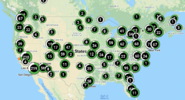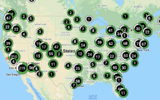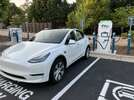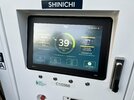Jeremy3292
Active Member
Very weird because it looks like this entire website was just created to sell the CCS adapters. There’s nothing else going on on this website lol. Probably just an opportunistic Tesla owner.I found the main website of the Utah guy selling those adapters on eBay.
I’m curious how the broker they are working with is able to export multiple (their inventory lists 12) CCS1 adapters out of Korea. Maybe an insider at Tesla? Very interesting.
“We have a contact within Korea that is brokering the purchase and shipment to the US.” Yeah my guess is that contact is Harumio







